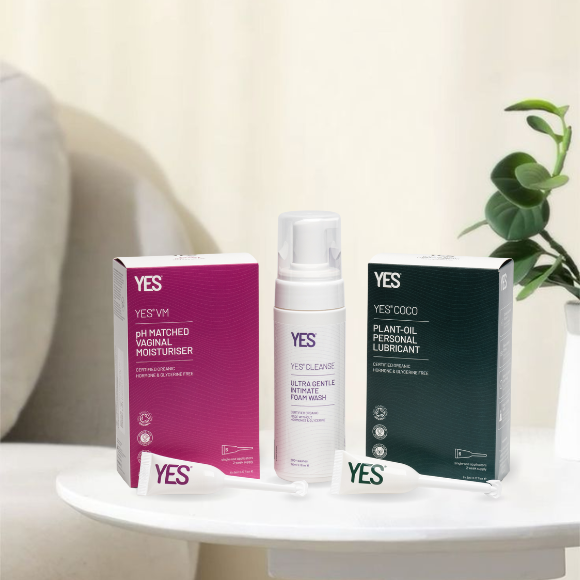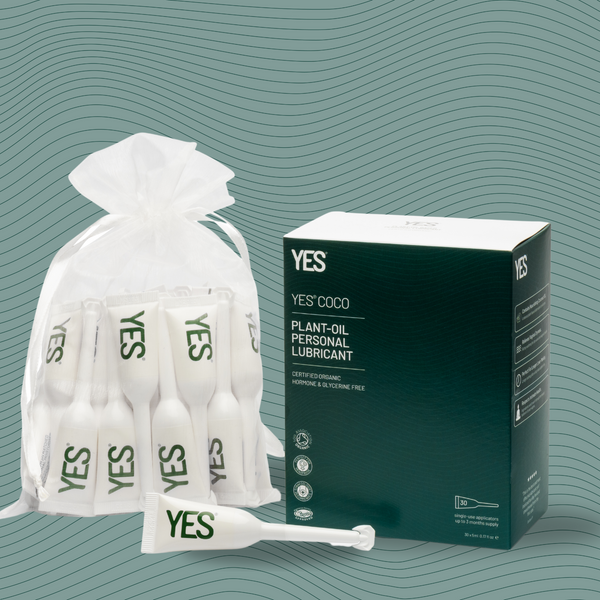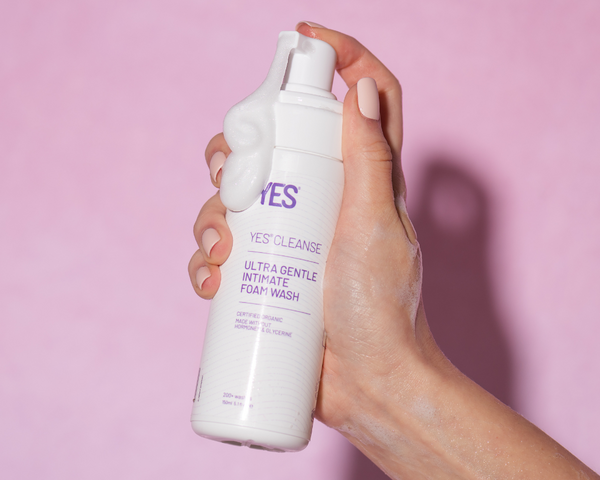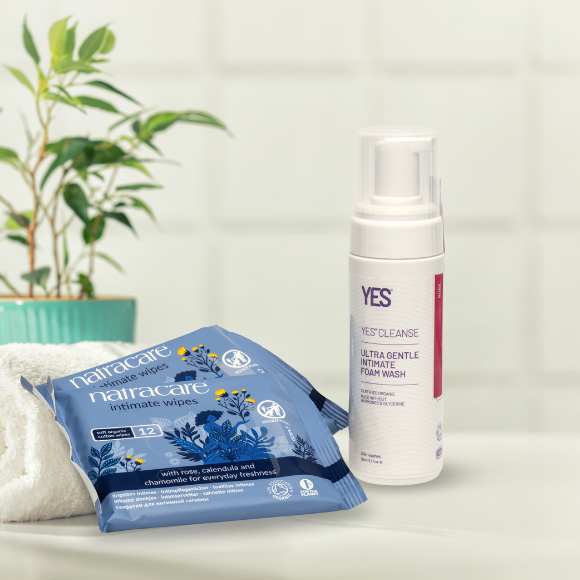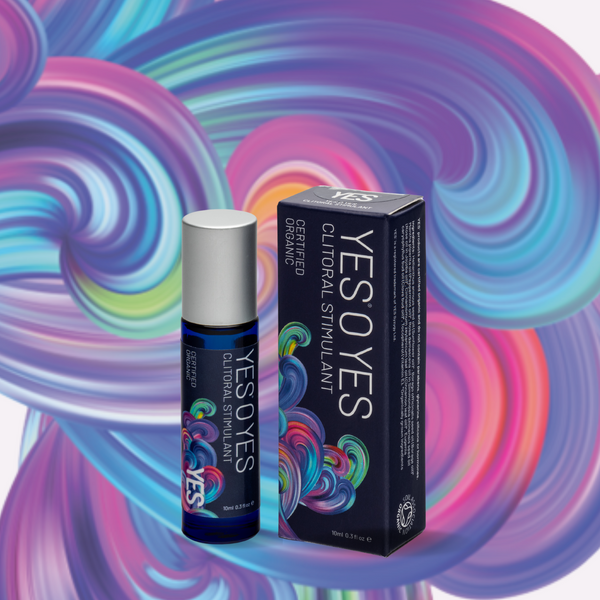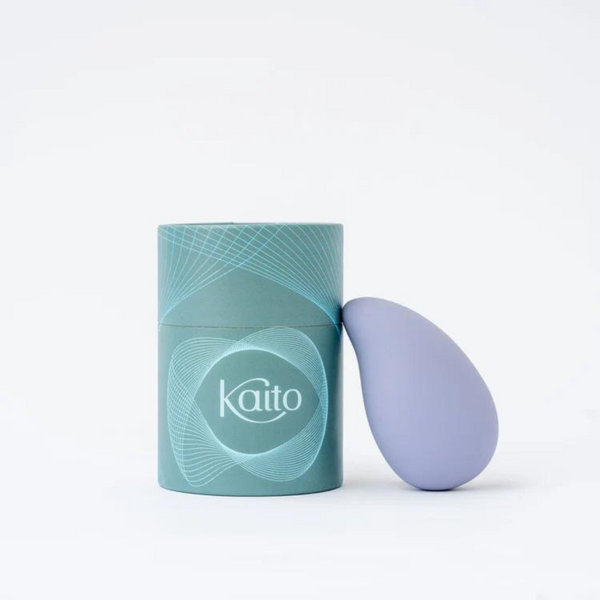 All Blogs
All Blogs
Of the 48+ different symptoms associated with menopause, those affecting the vagina and vulva have to be the least talked about. Whether it’s because of embarrassment, a lack of understanding from healthcare professionals, or women not realising that treatment options are available, vaginal problems often remain a painful secret. And yet 90% of postmenopausal women experience vulval or vaginal dryness, soreness, itching, atrophy, and pain, with symptoms frequently beginning before menopause, during the perimenopausal years.
Here, we’ll unpack some of the misunderstandings around vaginal health and explore practical steps to support vulvo-vaginal health through perimenopause, menopause, and beyond.
How does menopause affect vaginal health?
Let’s start by clarifying what is meant by vulvovaginal health as the terminology can be confusing. The vulva is all the genital parts that you can see on the outside of your body. This includes the clitoris, outer labia, inner labia, vaginal opening, mons pubis and urethra (where pee comes out).
The vagina is the internal passage that runs from the cervix (the opening of the womb) to the vaginal opening and is guarded on the outside by the inner labia.
The hormones oestrogen and progesterone play a key role in maintaining vulvovaginal health. They influence lubrication, skin texture, pH levels, and the balance of beneficial microbes that thrive in the vaginal tract and keep infections at bay.
When our hormone levels decline during menopause it can affect the vulva and vagina in many ways. You may notice some of these changes:
- Increased sensitivity to touch and fabrics - underwear and tight jeans may become uncomfortable.
- Vaginal dryness causing painful friction when moving or having sex. Check out our vaginal dryness and menopause page here for more information.
- Difficulty in enjoying sex and achieving orgasm.
- Itchiness and irritation.
- Frequent urinary tract infections (UTI).
- Regular bouts of thrush.
- Less vaginal elasticity which can lead to pain during sex or when having an internal examination.
- Changes in skin texture and plumpness.
While these changes can be a normal part of the menopause transition, it is important to speak to your healthcare practitioner about them so they can rule out any other possible underlying causes. And while these changes can be normal, nobody needs to live with them.
The YES® range of menopause-friendly intimacy products are designed to support women experiencing vaginal dryness, pain, and irritation at any stage of life. Using a daily vaginal moisturiser like certified organic YES® VM can help to alleviate uncomfortable symptoms and restore healthy vaginal pH levels. Using a water-based lubricant like YES® WB can quickly rehydrate dry intimate tissue and restore comfort during sex. YES® OB, our plant-oil based lubricant provides a protective emollient layer over the skin to reduce risk of injury during sex and enhance comfort and pleasure. These products can be used together to protect, soothe, and hydrate.
Vaginal pH – What is normal? Every part of the body has a different pH level which is measured on a scale from 0 to 14. pH refers to how acidic or alkaline a water-based environment is; pH 7 is neutral, below 7 is acidic and above 7 is alkaline. Your stomach, for example, sits around pH 1.5-2.5 which is strongly acidic because of the presence of stomach acid, whilst skin is slightly acidic, generally around pH 5.
A typically healthy vaginal pH is slightly acidic and is around pH 4. This acidity is maintained by the vaginal microbiome, a complex ecosystem of different microbes that live in the vaginal tract. This ecosystem is largely dominated by Lactobacilli bacteria which produce lactic acid.
Oestrogen helps to maintain a healthy environment for these bacteria to grow in. When oestrogen declines during menopause, the bacteria are affected too. Fewer lactic acid producing bacteria mean the pH level can shift, leaving us vulnerable to infections and irritation.
Does menopause cause yeast infections?
Menopause doesn’t cause all midlife yeast infections, but hormonal changes that affect vaginal secretions and pH balance can allow microbes like Candida, which causes thrush, to thrive.
What causes vaginal pH imbalance?
Alongside menopausal hormone changes other factors can affect vaginal pH balance too. These include:
- Smoking
- Pregnancy
- Oral contraceptive pill and Hormone Replacement Therapy (HRT)
- Obesity
- Menstruation
- Stress
- Douching or using harsh soaps in the vaginal and vulval area (check out YES CLEANSE for a pH matched, certified organic option)
- Infections
- Antibiotic usage
- Unprotected sex
- Aging
- Diet
Best foods for vaginal health
Everyday foods influence vulvovaginal health and the vaginal microbiome. If you’re experiencing any of the uncomfortable symptoms associated with menopausal hormone changes, try these food ideas to optimise vaginal health.
- Phytoestrogen foods contain compounds that are structurally similar to human oestrogen. They are safe to include alongside Hormone Replacement Therapy (HRT) and can help modulate the effects of declining oestrogen.
The best sources of phytoestrogens are:
- Traditional soy foods like miso, tempeh, and tofu
- Ground flaxseeds – these are easy to add to smoothies, soups, Overnight Oats, and baking
- Chickpeas
- Sprouted mung beans, red clover seeds, and alfalfa seeds
- Broccoli
- Cashew nuts
- Fermented foods supply beneficial microbes that support the balance of good bacteria in the vaginal microbiome. Sauerkraut, kimchi, kefir, and plain live yoghurt are all good options.
- Oily fish, walnuts, hempseed oil and flaxseed oil supply omega-3 fats that support skin membranes and help manage inflammation.
- Brightly coloured fruits and vegetables, dark chocolate, green tea, and good quality coffee supply polyphenols – plant compounds that feed the helpful microbes in the microbiome.
- Collagen supplements can support collagen levels in the body. We lose an estimated 30% of collagen in the first 5 years after menopause, and our levels continue to decline at around 2% per year after that. Collagen loss affects the structure and texture of skin in the vulva and vagina, making it thinner and more prone to small tears.
Balance – For Menopausal Wellness
Pura Collagen’s Balance formula is a world-first for menopause support. Combining Bioactive Collagen Peptides® with B-vitamins, magnesium, vitamins C and D3, soy isoflavones, and botanical extracts, Balance is perfectly placed to support all stages and symptoms of menopause – including those affecting vaginal health.

Soy isoflavones have been shown to have a beneficial effect on vaginal dryness thanks to their phytoestrogen activity. KSM-66® Ashwagandha, one of the key botanical ingredients in Balance is known to improve sexual arousal and lubrication in just 8 weeks.
Both KSM-66® Ashwagandha and Maca root are adaptogenic herbs, renowned for their ability to help the body adapt and cope with different physical, mental, and emotional stresses. This kind of support is especially important for menopausal women as vaginal symptoms can cause ongoing anxiety.
Balance comes as a raspberry and mint flavoured powder that mixes easily with water to make a refreshing drink. Just add 1 scoop to a glass of water to enjoy this blend of nutrients proven to support hormone balance, memory, concentration, bone health, energy levels, and more. Balance is compatible with HRT; you can start taking it at any stage of your menopause journey and continue for as long as you need to.
Empower yourself
Read more about the changes your body goes through during peri menopause and post menopause.


